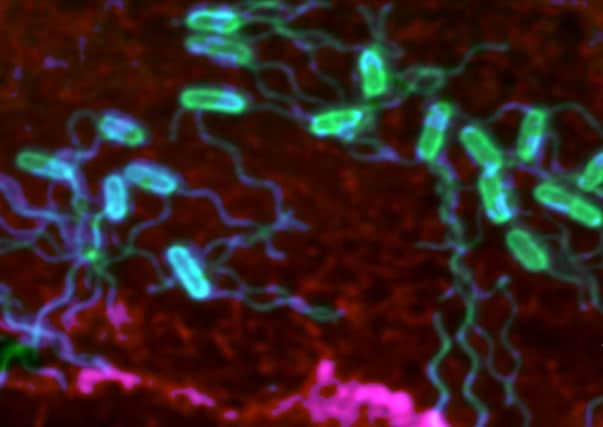Vaccine for virulent E.coli prevalent in Scotland a step closer


For years, researchers have been at a loss as to why incidences of the infection in Scotland have remained consistently higher than other countries in the UK and Europe.
Now a four-year-long study has identified a rare subtype of the bacterium carried by cattle as a possible cause for the anomaly, raising hopes that a vaccine could prevent people developing life-threatening illnesses when it enters the food chain.
Advertisement
Hide AdAdvertisement
Hide AdThe research, carried out by a consortium of scientists led by the Roslin Institute, Scotland’s Rural College and the Moredun Research Institute, found the overall prevalence of E.coli O157 in cattle is similar across the UK, and has remained relatively consistent in Scotland over the past decade.


However, using whole genome sequencing to identify which types of E.coli caused outbreaks, the scientists discovered cattle in Scotland had a higher level of a subtype known as PT21/28. It is associated with the passing of large volumes of the bacteria in faeces. Given the subtype also causes more severe human infection, the researchers say exposure to it may explain why the rates of human E.coli O157 infection in Scotland are around three times higher than in England and Wales.
Professor David Gally, chair of microbial genetics at the Roslin Institute, said: “We have found that strains present in Scottish cattle are more likely to be associated with serious illness in humans, possibly explaining the higher incidence of E.coli O157 infections in Scotland compared to England and Wales.
“What makes the strains toxic in humans also facilitates their colonisation of cattle.”
By combining the genome sequencing data with machine learning, the research team also predicted which subtypes of E.coli O157 pose the greatest threat to humans, work that could ultimately help prevent the public from becoming infected.
Gally explained: “We have made advances in development of a vaccine for use in cattle that now needs assessment in large-scale field trials. Modelling indicates that such an intervention would have significant public health benefit.”
Dr Jacqui McElhiney, head of food protection science and surveillance at Food Standards Scotland, described the study’s findings as “really encouraging”.
She said: “Scotland has historically had the highest levels of E.coli O157 infection in the UK and, despite our best efforts, the number of people affected has remained stubbornly stable. This research has shed some light on the possible reasons for this and it’s really encouraging to see the progress that has been made in developing a potential vaccine.”